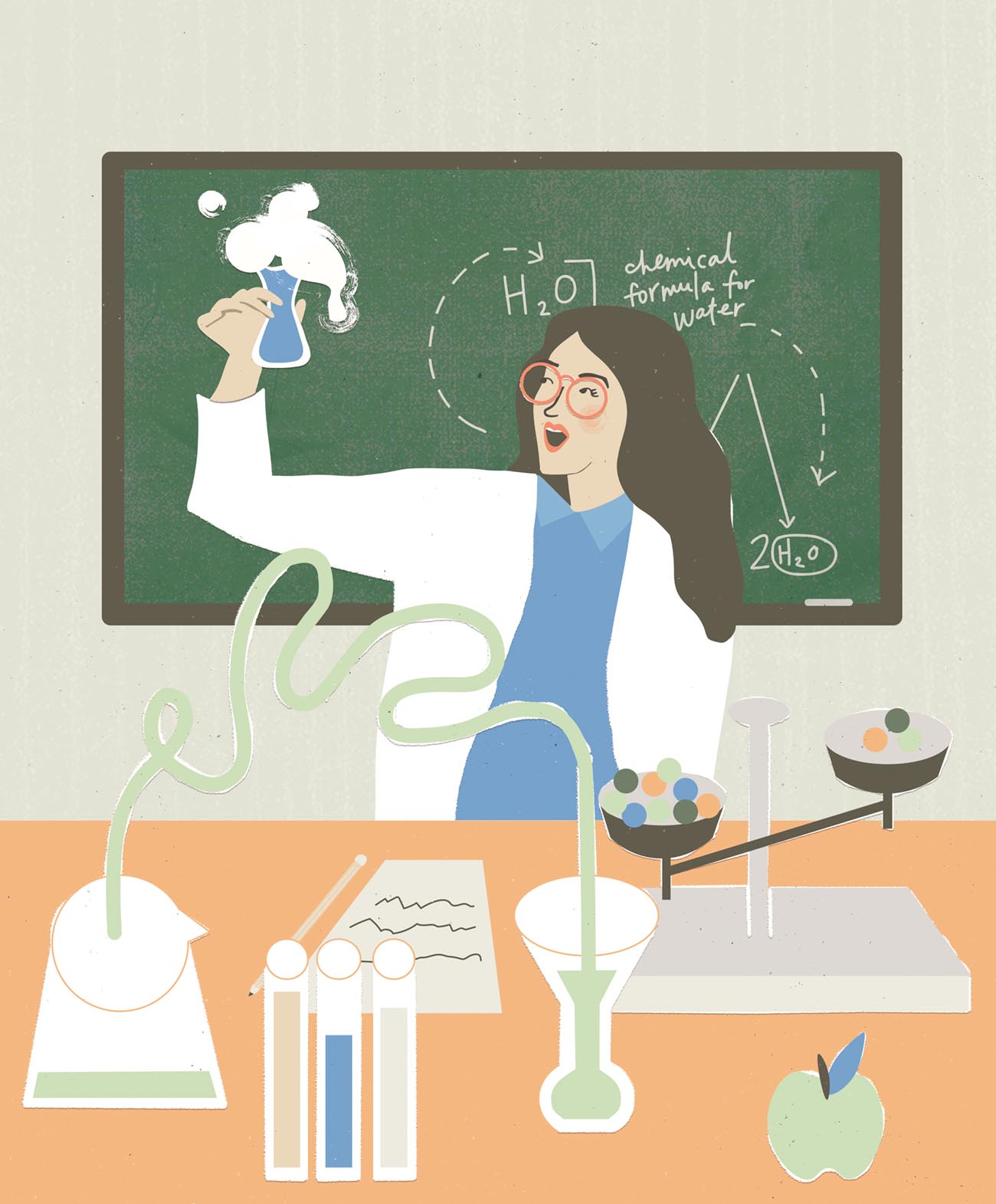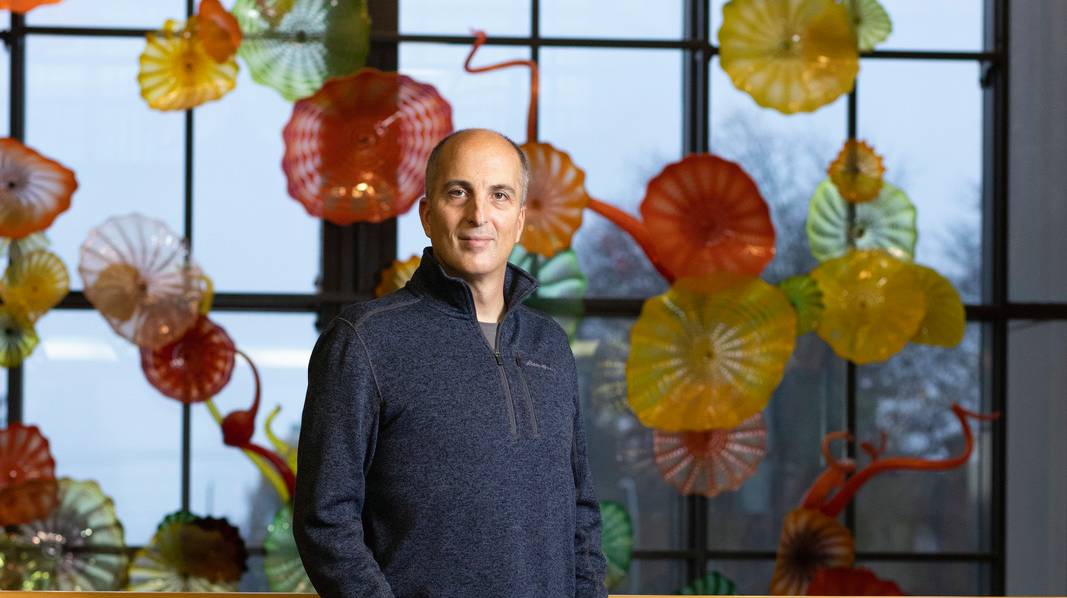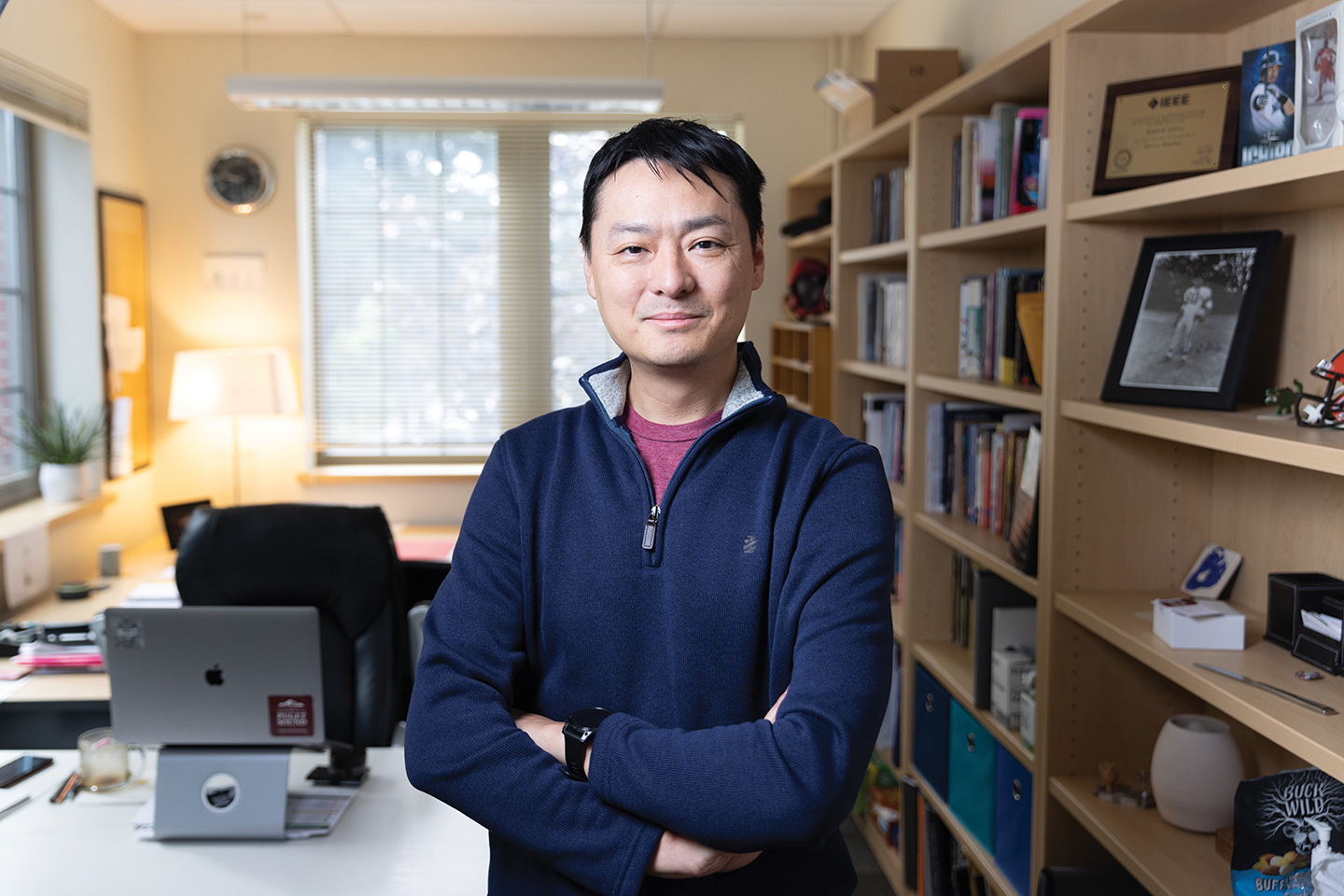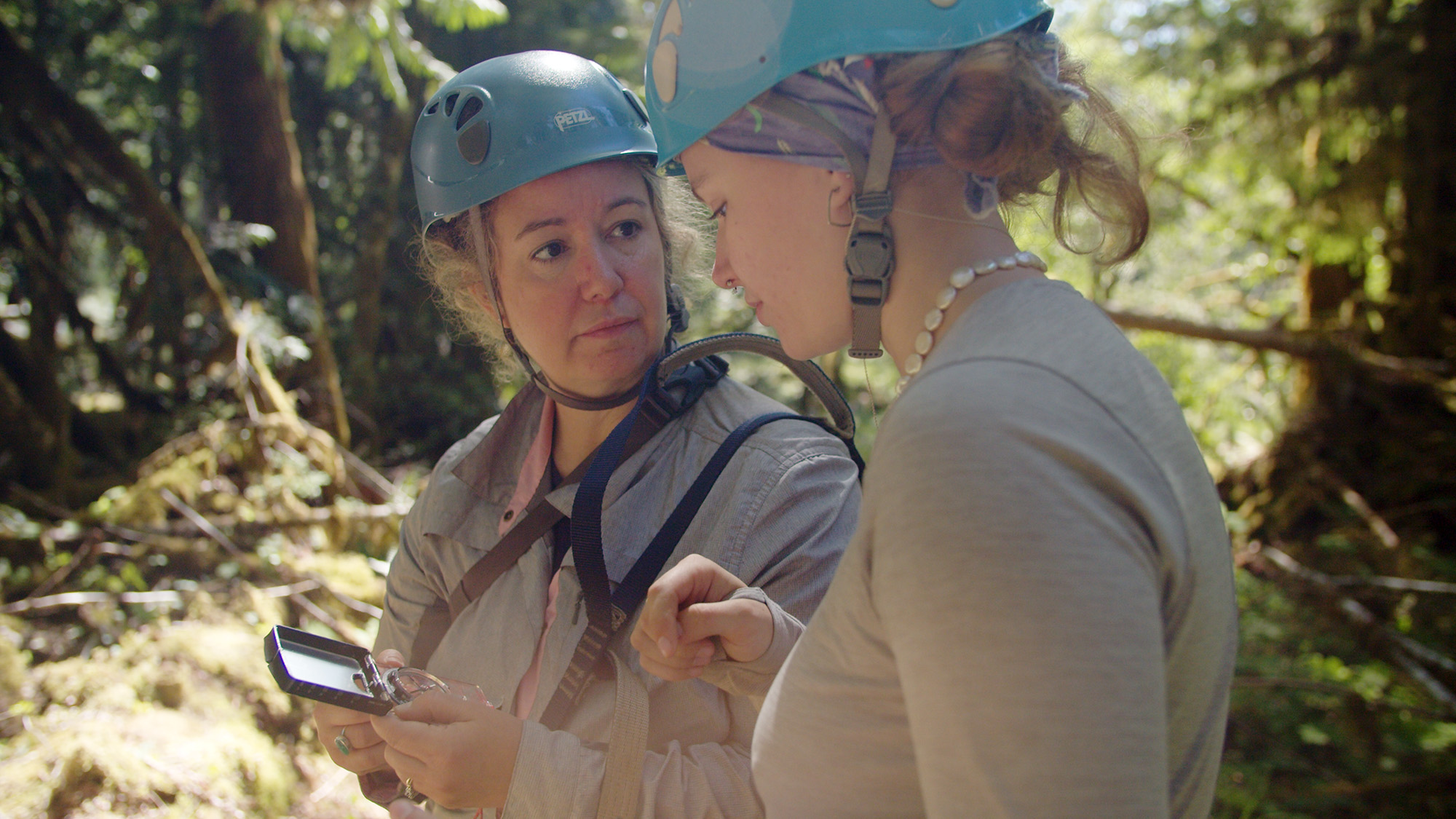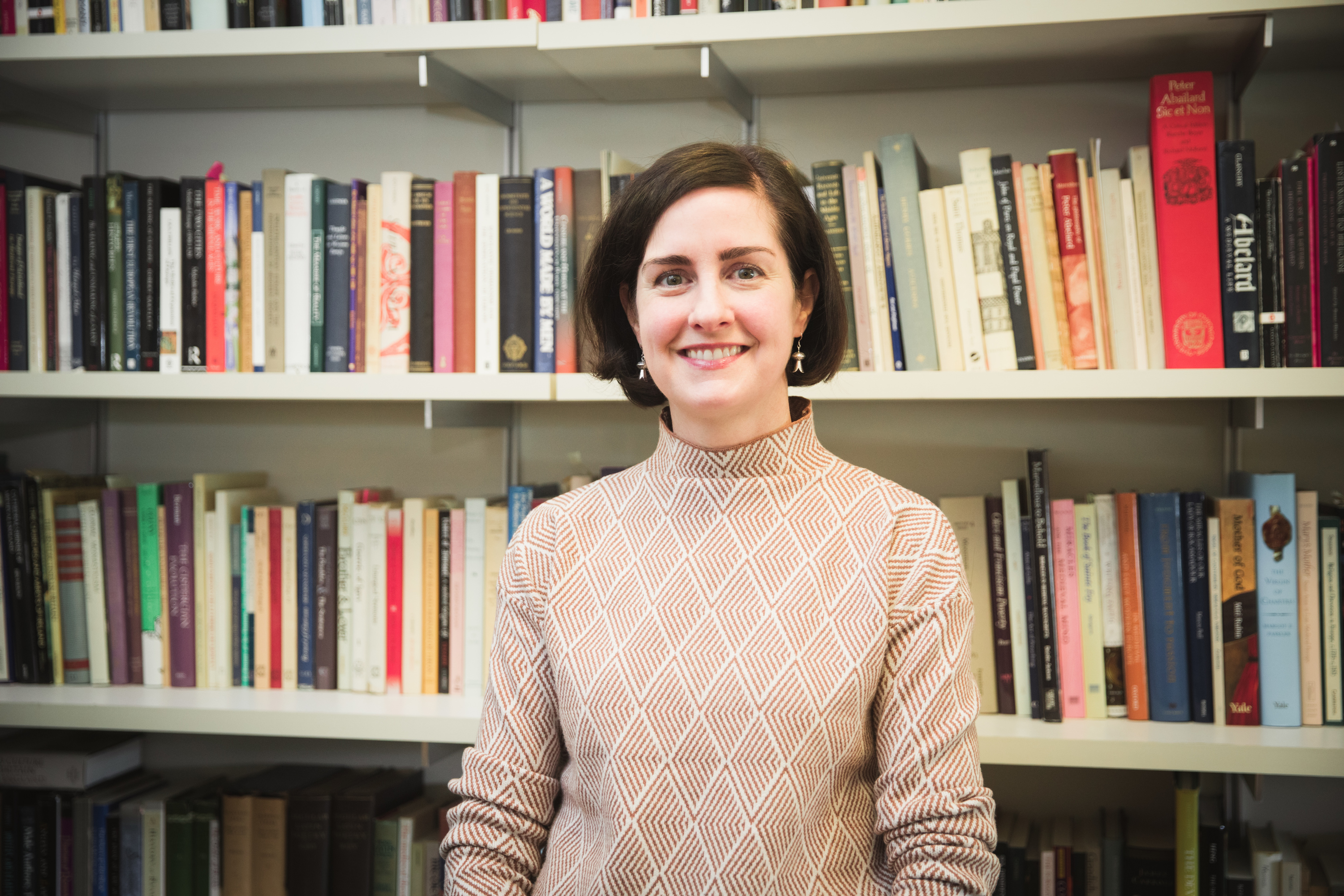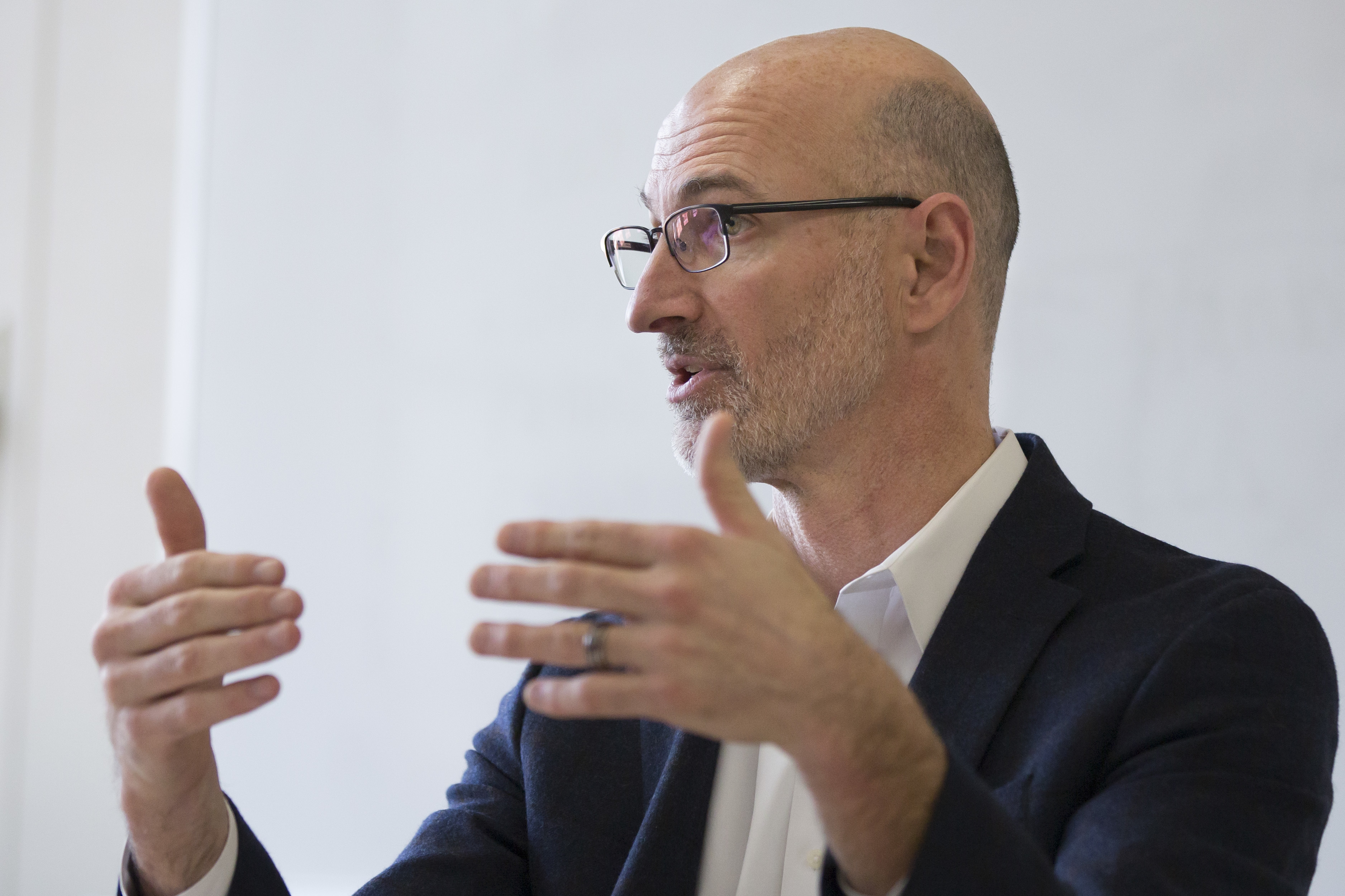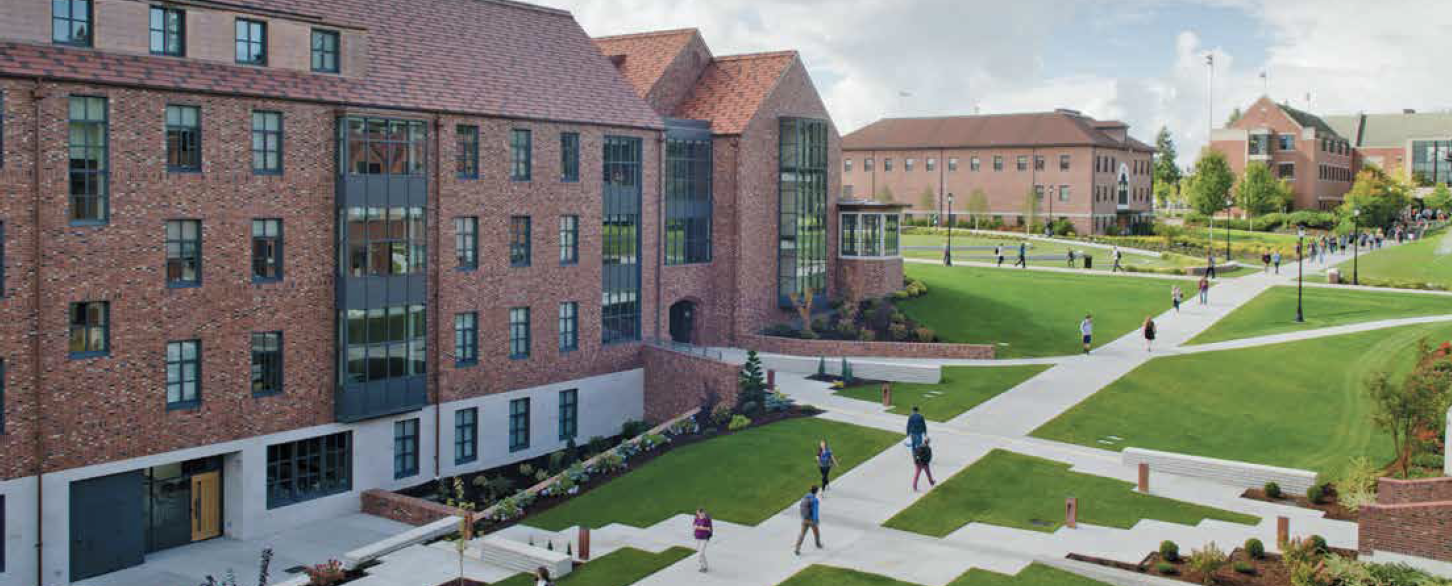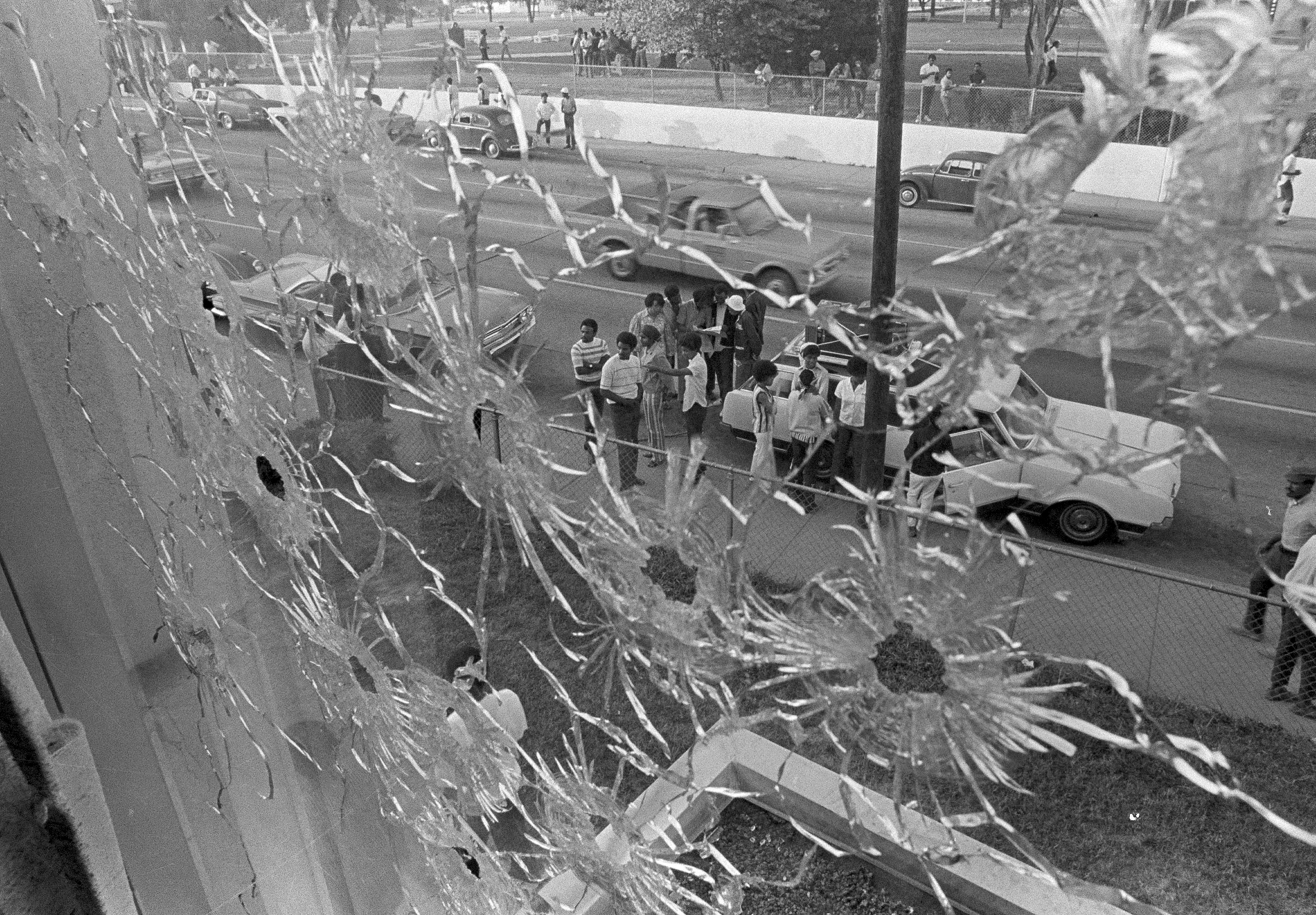We asked you to tell us about your most memorable professors at Puget Sound. Here are your stories.
MATH MADE EASIER
I was so fortunate to walk into Bruce Lind’s math class my first semester as a nervous, timid freshman. Dr. Lind was consistently kind, patient, and willing to help outside of class. Plus, his teaching made the subjects so easy to understand. I went from avoiding math classes in high school to taking every math class he taught in my time at Puget Sound, resulting in a minor in math. When I had the opportunity to teach math at the high school and community college levels, I tried to emulate how well Dr. Lind explained the concepts. And I tried to also be as kind and patient with my students; you never know whose life you may change.
A second memorable professor was George Blanks. I took his human genetics course for nonmajors, and it changed my life. I switched my major from French to biology and went to graduate school in medical genetics. I loved teaching genetics as a community college professor. Dr. Blanks was kind and encouraging, another great example for me.
Diane Anderson Palmquist ’76
Tacoma, Wash.
CHALLENGE ACCEPTED
I had the honorable distinction of being the first person foolish enough to audit one of Jan Leuchtenberger’s Japanese literature classes. Her courses were the most challenging and engaging I took, and nearly a decade later, I still refer back to the concepts learned. Jan had high expectations but was always willing to work with us to develop our ideas and improve arguments. I am a better writer and critical thinker today because of the time I spent in her classes and the countless revisions she helped me work through. The discussions were lively and thought provoking, and many of my closest Puget Sound friends were made in her classes.
Jessica Lefton ’13
St. Louis, Mo.
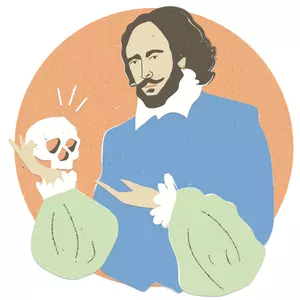
PASSION FOR A PLAYWRIGHT
My most memorable professor was LeRoy Annis, from whom I learned all things Shakespeare. His lectures changed my life. I became an English lit major, reckoning that as long as I was paying for it, I’d study what I liked. I’d worry about how to earn a living later; at that moment, I was there to learn, to absorb, to be transported to a world different than anything I’d known before. Dr. Annis did not disappoint. My love of language and theater, poetry and prose, comes from time spent in his classroom. My pilgrimages to Ashland [home of the Oregon Shakespeare Festival] began as a Puget Sound student. During too many years of too much work and too little fun, I recalled those lectures and that trip, determined to one day get that piece of my life back. And so I have. I will always be grateful to Dr. Annis, and to Puget Sound, for enriching my life, as it turns out, for the rest of my life.
Tammra Lund Mertz ’81
Olympia, Wash.
CAN’T STOP AT JUST ONE
I graduated from Puget Sound more than 40 years ago, and I still remember three professors who made an impact on my life.
I had absolutely no interest in economics when I signed up for the class to fulfill a requirement. Michael Veseth demonstrated every day how learning could be fun. I still remember a lecture on wealth distribution where he introduced a caveman who owned the biggest rock and named him the “Rockefeller.” I ended up taking more classes from him just to enjoy the presentation. I have always tried to add silliness and fun in my own elementary classroom.
LeRoy Annis challenged my sheltered upbringing and encouraged me to explore societal “myths.” He did so without ever embarrassing me for my naivete.
My fondest college memories center around my time playing trumpet in the Wind Ensemble under the direction of Robert Musser. My fellow musicians were my best friends and supported me throughout my time at Puget Sound, and I continue to play to this day.
D. William Kusler ’78
Snohomish, Wash.
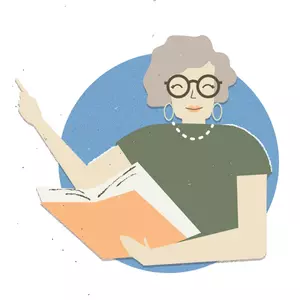
“TEACH” EARNED HER NICKNAME
Of all the classes required for an elementary education major, the storytelling class taught by Martha Pearl Jones was the most valuable, the most relevant, the one class and philosophy that served me for my entire teaching career—and, later, when I earned my master’s to become a school counselor. She remains unforgettable, a warm memory in my retirement years. I remember “Teach” because she illuminated my college experience with her energy and humor. She was ageless, wondrous, a legend for all time. She was a storyteller, a teacher, a friend. When it rained, she talked of rainbows. When we failed, she picked us up, brushed us off, and told us to “get on with it.” She taught us about the world without depending on textbooks. She spoke of love through childhood magic. She used knowledge and sprinkled wisdom. She gave me insight into all the possibilities of life. She inspired me with the desire to teach and to teach well. Here’s to you, Martha Pearl Jones. Because of you, I am a better person, a compassionate teacher, and a wise counselor.
Judith Lindberg ’66, P’93
Port Angeles, Wash.
Martha Pearl “Teach” Jones was small in stature, but with a large and mighty presence in the classroom. In the ’60s at Puget Sound, the education department classrooms were large, high-ceiled rooms with wooden floors, a large bank of tall windows, and a heavy, tall wooden door. We would all wait quietly for our class to start, and in would burst “Teach” Jones, all 4’10” of her, wearing her black, thick-heeled shoes that would click loudly on those wooden floors. Her surprisingly loud voice would boom, “Hello, class!” We, being too cool in our 20s to shout back, would murmur, “Hi.” She would then do an about-face to head back out the door and call over her shoulder, “I must be in the wrong class, because I said, ‘Hello, class!’” Then we’d respond with our own booming voices, “Hello, Teach Jones.” She would smile and say, “That’s more like it!” and begin our class. It was a daily pattern that we came to expect and enjoy. I always loved her energy; even though she must have taught these classes hundreds of times, she still knew that we were there for the first time. One thing she repeated many times is this: “If you want young children to remember what you are teaching them, sing it to them, feed it to them, or have them act it out.” I did these things in my 36-year career teaching kindergarten, and it worked. I appreciated her style, energy, and love for her students. She helped me be the teacher I am.
Janice Batten Colby ’69
Poulsbo, Wash.
HER AUTHENTIC SELF
Lisa Wood inspired me to pursue a doctorate in psychology. Dr. Wood presented as authentic and passionate and, in turn, cultivated a vast level of curiosity for questioning the human spirit, personality, and diagnoses. She taught me how to be a professional in the field and incorporate my personality and uniqueness toward the healing of others. She allowed me to show up not only as who I truly am, but as the best version of myself as a student, scholar, and therapist.
Caitlin Fuller ’14
San Diego, Calif.
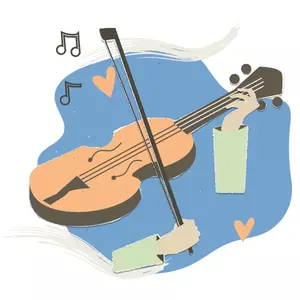
MAKING THE VIOLIN PLEASANT
When I was growing up, violin practice was an obligation, another aspect of nightly homework. I practiced dutifully and played on demand for recitals and family gatherings. As a freshman in Tim Christie’s violin studio, I considered myself a mediocre musician and a product of the Suzuki factory—no more, no less. Today, my sheet music from Puget Sound is covered in pencil markings—notes about bow strokes, fingerings, and key changes. Sprinkled throughout are the true gems: Tim’s reminders to breathe, to visualize, to embrace frustration, and to find balance in a moment. Over four years of lessons, these notes became mantras for my life as much as for my music. Tim encouraged me to choose music that matched what I wanted to say. He taught me to use my violin for more than notes on a page—to shout, whisper, growl, and sing—to find my own voice. My violin is my confidante and companion, a solace I turn to in times of sadness or stress, and my conduit for joyful noise. Tim helped me find my own voice through music, and I am forever grateful.
Kate Preteska ’09
Albuquerque, N.M.
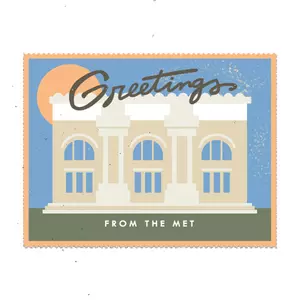
ART APPRECIATION AND MORE
Ronald Fields, former head of the art department, along with his wife, Harriett, and baby daughter, Rachel, led our trip to London for the fall of 1973 semester abroad program. Rachel turned 1 year old while we were there and was toted about in her baby backpack on our weekend getaways or daily field trips aboard the London Underground to various museums. When I think of the enormous responsibility that Ron and Harriett had for us students, I am humbled. We were a spunky group and felt very independent and grown up. Our classroom was any museum or architectural wonder in London or around the English landscape. It was wonderful to see Ron see the real iconic works of art up close, for the first time. His enthusiasm and passion were infectious to us. Over the years, we have been invited to their home for reunions and dinners. And to this day, when I visit any art museum, I always send them a postcard to say “hi” and “thank you” for instilling my love of art history.
Kate Johnson Spector ’75
Evanston, Ill.
HOORAY FOR HEPPE
Paul Heppe was the most influential person that I encountered at Puget Sound. He was absolutely fantastic. Cannot think of another professor that had such an influence on me. A real leader and one who cared “mucho” for his students. Great recommendation to go to graduate school at Thunderbird! Fantastic person!
Robert Phaneuf ’73
Scottsdale, Ariz.
ONE OF A KIND
I am among many English majors who immediately think of Esther Wagner when asked about their favorite at Puget Sound. She was a challenging, hilarious, brilliant delight. She held us in rapt attention in the classrooms of Jones Hall’s second floor as we discussed literature and mythology, led us in wildly wonderful charades parties at her Old Town apartment, and regaled us with stories of Chicago and Bryn Mawr over lunches at Knapp’s (she loved their steak and Monte Cristo sandwiches) or over dinners at Harbor Lights (impressing us with her original Harbor Lights credit card!). There will only be one Esther Wagner, and those of us who knew her absolutely loved her—and will forever.
W. Houston Dougharty ’83
Hempstead, N.Y.

HALLWAY RACES: OTHER DUTIES AS ASSIGNED?
I looked at him and he stared right back at me—without exchanging any words, we both knew the race was on. In a flash, geology professor Jeffrey Tepper and I were tearing down the Thompson hallway, flying past thesis posters and display cases full of rocks. I was in a swivel chair and he was on foot, and that is the only reason he beat me that day. Jeff is one of those professors who brings passion and joy to everything they do. Whether he is thoughtfully explaining the geologic processes that formed an ancient outcrop on the side of the freeway or playing croquet with students at the annual department barbeque at his house, he is always wearing a smile. My time at Puget Sound was strongly shaped by this truly terrific teacher. He showed me the magic that is geology, pushed me to write a thesis and present it at conferences, helped me through challenges both in class and in life, and made me laugh time and time again. I will treasure those memories for the rest of my life.
Miriam Cohen ’19
Sunnyvale, Calif.
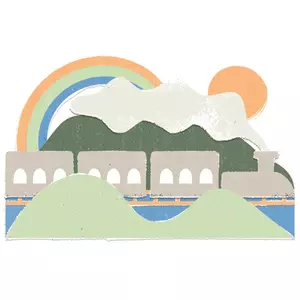
TRAVEL GUIDE AND MORE
Herr Professor Doktor Warren Tomlinson accompanied the 1967 study abroad students to Vienna. We had a week each in London, Paris, and Rome before living in the heart of Vienna for the semester. Each of those first three weeks, we had a day of touring in the city, and then a day to see points of interest in the surrounding countryside. Part of the remaining week we were on our own, and Dr. Tomlinson did all he could to get us out of our hotels and exploring. Each week, we were also required to write a paper about where we had been and what we learned. As it got closer to Easter holiday, Dr. Tomlinson started asking where we were planning to spend that long week. Many thought skiing would be good; Dr. Tomlinson asked if there might be some other countries these skiers might want to visit, as that chance might not come again. Then he announced that when everyone made their plans, he would accompany the largest group. The week before the holiday, it became clear that our beloved professor would be going to Greece. Having Dr. Tomlinson with us gave us a much richer experience, as his lifelong travels enabled him to direct us to experiences we might not otherwise have had in Europe’s major cities. His encouragement to explore, as well as his piercing questions, made it a once-in-a-lifetime experience.
Alice Ann Glenn ’68
Monterey, Calif.
COLORFUL TALES
Mine is—hands down—the late, great Arpad Kadarkay from the politics and government department. He brought concepts of political theory, philosophy, and history to life by weaving their stories together in a rich and interesting way that always had me locked in. He’d spend so many days on a colorful historical tangent about some political figure that he would have no choice but to add it as a finals essay question choice. His enthusiasm always showed, and it was contagious through the twinkle in his eyes and conspiratorial way he’d weave the tale of how big ideas have been harnessed to create the nation states of our world.
Lindsey O’Rear ’05
Grass Valley, Calif.

STATISTICS PARADISE?
Without a doubt, Alison Paradise was my most influential Puget Sound professor and mentor. Her statistics class was taken by most athletes, and always included a few minutes of recap from the game the night before, whether that be volleyball, basketball, or soccer. Her support extended outside the classroom, and she was a near constant presence at the women’s basketball games, both home and away. As time went on, Alison morphed from professor to friend. My former teammates and I always look forward to seeing her when we’re back at Puget Sound for Homecoming or a game. Alison inspired me to become a high school math teacher, and I always hoped to be as supportive and involved with my students as she was. Now, as an assistant principal at a high school, I hope to instill in my students the idea that, with perseverance, hope, and kindness, anything truly is possible. Thank you, Alison, for inspiring me and countless others to reach for our dreams but also enjoy the ride along the way.
Lindsay May McQuiston ’05
Vancouver, Wash.
PRAISE FOR PERRY
In the fall of 1985, as a new and very green student, I elected to take Mandarin Chinese from Professor Lotus Perry (or Sun Laoshi). Second only to the decision to marry my wife, it was the best decision I ever made! Chinese study was not easy, and I was not her best student—by a good margin. However, she somehow tapped into an unknown interest in the unique culture and the excitement of learning about a people and place so different from my own. For the summer of 1987, she encouraged me to study in Taiwan at Tung Hai University. I did and learned so much. I was hooked. She then supported my effort to study for a full academic year (1988–89) at Beijing Normal University. Although I left China a few days prior to the June 4, 1989, crackdown in Tiananmen, I did work for CNN for several months as the demonstrations gathered steam. These memories I will never forget. I have since lived for 30-plus years in China, Hong Kong, Singapore, and Tokyo, building a career, having a family, and enjoying every minute. Sun Laoshi inspired me to take risks, explore, and learn. I have a tremendous debt of gratitude for her wonderful support.
Mark Smith ’89
Tokyo, Japan
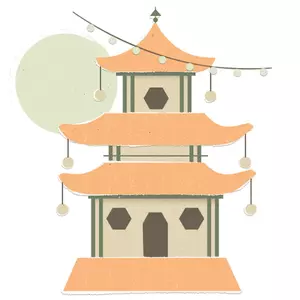
Lo Sun “Lotus” Perry was my advisor. As a lost and homesick Hawaiian freshman, she helped me acclimate to life on campus. For her students, Sun Laoshi created a community that extended beyond classroom borders and gave me a sense of belonging: Because of her, I practiced my fledgling Mandarin at a local Chinese restaurant in the Proctor District and at language conversation hours, made dumplings, and watched an acupuncturist demonstrate traditional Chinese medicine. She had a knack for making Chinese language, history, and culture relevant and fun. Students learned nursery rhymes at the same time as her daughter; I can still sing “Head, Shoulders, Knees, and Toes” in Mandarin—useful as I now have a toddler of my own. Sun Laoshi guided me toward intensive study abroad programs in Taiwan and Beijing, which were life-changing experiences. With her assistance, I also qualified for a Trimble Grant to return to Taiwan the following summer to research my senior thesis and finalize a B.A. in Asian studies and a minor in Mandarin. I will never forget the one and only time I ditched her class to sleep in; the following day she inquired if I was feeling unwell or needed anything. I never ditched her class again.
Lacey Chong Hayes ’03
Sterling, Va.
CAREER INFLUENCER
Kate Stirling was my advisor junior and senior year and guided me through one of the most transformational times in my life. Not only did she become a support person as I came out of the closet and navigated my first relationship, she advised me on my thesis—a thesis that ended up launching my career. This paper helped me land my first job as a water resource economist and was eventually published and presented at conferences. I’ve grown from that research into leading a full-service water engineering practice across six states in the PNW. But I’ll always remember the biggest smile and hug from Kate walking across the stage at graduation! She really helped shape me into the leader I am. Without her, I wouldn’t be in the position I am now.
Alex Shannon ’14
Seattle, Wash.
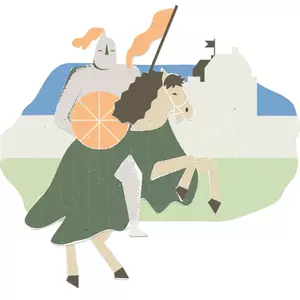
HISTORICAL INFLUENCES
In the summer of 1965, I was an Air Force captain at McChord AFB seeking a B.A. at Puget Sound and signed up for both courses in medieval history. On the first day of class, a nattily dressed, youngish looking man walked into the classroom and introduced himself as Professor Walter Lowrie. I was immediately impressed by his manner, and when he began to lecture, I was smitten! No other professor had ever brought life to history as he did. His depth of knowledge was remarkable, and he conveyed it in a manner that left me spellbound. I had been thinking of an academic career once my Air Force commitment was up, and he was the type of professor I wanted to emulate. Unfortunately, life intervened and I lost contact with him. In 1983, while attending my son’s graduation from Puget Sound, I sought him out and we had a great reunion. I now have a Ph.D. in history due, in part, to the love of history that I acquired from him. I have never forgotten him.
Sheldon Goldberg ’67, P’83
Silver Spring, Md.
ANOTHER STATS STORY
All of my psychology major upperclassmen friends scared me when sharing their experience in Carrie Margolin’s statistics classes, saying they were so difficult and she was so tough. I had the opposite experience and aced both classes, and she ended up asking me to be her teaching assistant for a year. What I learned from her prepared me for graduate school. I was a step ahead of everyone else because of my degree from Puget Sound!
Melinda Jose ’86
Montebello, Calif.
A LOVE OF LATIN AMERICA
In January 1994, my senior year, I got into Don Share’s Latin America Study Tour class. It was competitive and highly revered. We were headed to El Salvador, just after the story of the 1981 El Mozote massacre, the worst massacre of the Salvadoran civil war, had been published in The New Yorker, and the country was also about to vote in its first postwar elections. With an idealistic heart and some basic academic knowledge, I boarded a plane with a small group of students accompanied by our dream team of professors (Don Share, Karl Fields, and David Sousa). After a week of travel and meeting with different sectors of society—left-wing, rightwing, religious, and civil society groups—and visiting the site of the massacre, I was never the same. I learned that the truth is infinitely more complex than what can be read on a page and that I deeply wanted to get involved in social justice in Central America. After graduation, I did intensive Spanish-language training in Guatemala, then went on to get two master’s degrees at Columbia University, and spent over 12 years in Guatemala and El Salvador doing community development and disaster relief. I now am the director of foundation and strategic partnerships at an international conservation organization—and married to a wonderful Salvadoran man. To say that Don Share shaped my life is an understatement. I am forever grateful.
Karina Copen ’94
San Marcos, Calif.
SOLID FOUNDATION
In the mid-1960s, I came to Puget Sound with a B.A. in philosophy from another university to complete my English major and gain certification as a teacher. My most memorable professor was education professor Nathan “Nate” Gross. As an ethnic Jew, Nate was especially concerned about the state of civil rights in the United States, and he addressed those concerns and the importance of awareness among teachers. At Christmas, Nate invited his students to his home for a Christmas party complete with a Christmas tree, and he introduced us to the music of Bob Dylan. Since then, I spent 50 years in the field of education as a Peace Corps volunteer teacher in Kenya, and a teacher, school administrator, and university professor in the Puget Sound area. Nate Gross certainly gave me a solid foundation in education.
Edward M. Shipman M.Ed.’79
Seattle, Wash.
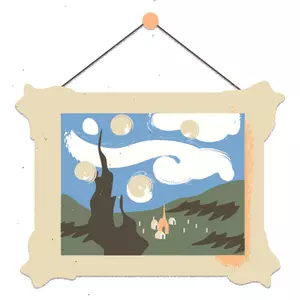
A LASTING IMPRESSIONIST
It was only an elective. People said it was a pretty good class, and it didn’t require a term paper. I was intrigued because I thought it might be interesting. So, I signed up for Understanding the Arts, taught by Francis Chubb. I really enjoyed the class and was sorry when the semester ended. However, I didn’t realize that what I learned in that class would stay with me for the rest of my life. Every time I go to an art museum, I remember what Miss Chubb had to say about the impressionists and later painters. It is still thrilling to see the works of art in person after learning about them more than 50 years ago. Miss Chubb gave me a lifelong appreciation of art.
Cammy Jones Seguin ’70
Tuscola, Ill.

A MAJOR HELP
All of the professors I had at Puget Sound were very caring, inspiring, and memorable. But one stood out: Andreas Madlung. His passion for both teaching and biology comes through in his lectures and how he interacts with his students. His plant physiology and molecular biology course opened my mind to the amazing world of plants and the vast opportunities of biological study as a career. As my advisor, he helped me through my indecision in choosing my major, and for that I will be forever grateful.
Juliet Heller ’21
Davis, Calif.
IS LIZARD WRANGLING ON THE SYLLABUS?
Ernest Karlstrom, who taught in the biology department, had an interest in the ecology of South Pacific islands. He had a grant to study monitor lizards on Eniwetok Atoll in the summer of 1968. Normally, he would have chosen a graduate student to be his research assistant. Fortunately for me, he knew I was on the Puget Sound basketball team, and I guess he thought I would be helpful to the lizard-capturing team. We arrived at Eniwetok on a military air transport funded by the Atomic Energy Commission. The first sign I saw said “DANGER— Radioactive Area” (in the 1950s, this had been the site of U.S. atomic bomb testing). Soon, I was running through the jungle, salmon dip net in hand, pursuing 5-foot monitor lizards, and climbing to the crown of palm trees chasing lizards to the end of fronds, with Dr. Karlstrom standing below with the net. I was good at finding lizards, climbing palm trees, and attaching radio tracking devices to them. When a lizard bit me, nobody knew if they were poisonous. Then I realized why Dr. Karlstrom had chosen me, a lowly undergraduate “B” student: because I was expendable!
John Colby ’69
Poulsbo, Wash.
THE FOREIGN AFFAIRS DESK
I had many excellent professors, but Lyle Stanton “Stan” Shelmidine stands out. Shelmidine had taught at the American School in Tarsus, Turkey, from 1930 to 1934, during which he traveled throughout Europe and the Middle East. An accomplished linguist, he became fluent in six languages and multiple Arabic dialects. In 1936, he was hired as a history instructor at College of Puget Sound, with a salary of $1,800 a year. He received a Ph.D. from University of Iowa in 1939 and completed postdoctoral work at Princeton before returning to Puget Sound. In 1942, he joined the Office of Naval Intelligence and ran its Balkan Desk. In 1944, he was assigned to the American Naval Mission to the Turkish Naval College, where he interacted with many of his former students, now active in the Turkish government. He returned to Puget Sound in 1946. A tough and uncompromising teacher, he demanded clear writing, critical thinking, and an acute awareness of the world around us.
C. M. Smith ’61
Richland, Wash.
AT EASE IN HIS OWN SKIN
I was fortunate enough to sit in one of the first urban studies classes taught by Dan Kelleher in the late 1960s. The urban studies department was new, and his classes energized and relevant to what was happening in Tacoma and the world. The university seemed so insular to me, coming from the East Bay Area and spending a lot of time in Berkeley growing up. Dan was a leader in a new direction and approach to the college-community relationship; he sought to dissolve the membrane that separated Puget Sound from what was going on around it. That’s not why I remember him, though. He is remembered for what was within him and behind his holistic and organic approach; simply stated, it was the way he spoke. Dan had a severe stammer. Sometimes he would struggle for five seconds before getting his word out … and then … he would just continue, as if nothing had happened. No embarrassment. No apologies or self-consciousness. No uneasiness. It was never mentioned. He just continued to speak … and stammer. By example, he taught me to accept myself as I am.
Bryan Honore ’70
Cayucos, Calif.
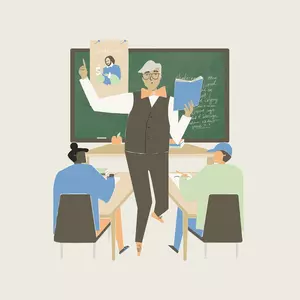
AN INSPIRATION IN THE THEATER
Geoff Proehl in the theater department was not only our teacher but also our director, and I acted under him in two productions, Our Town and Vinegar Tom. Geoff entered into the world of the plays like no one else I’ve known. As the director, he lived their complexity, their pain, their depth right along with us. Geoff taught me to sit with difficulty, to appreciate it, and to mine my own depths for all the emotional riches therein. He also showed us incredible care and attention. Under his mentorship, I felt like a fully recognized individual. I felt he saw my struggles and my talents and truly wanted to help me focus on developing the latter. Still, at 42, I hope to do him proud. I can’t imagine a clearer mark of a great educator than to continue to inspire a student decades after their time together. Thank you so much, Geoff.
Sarah Moon ’00
Pawtucket, R.I.
PATIENCE REWARDED
Professor Alan Thorndike. I first learned where the North Star was from him, followed by Snell’s Law, Kepler’s Law, and much more. Later in my career, I became a subject-matter expert for daylighting in architecture practice, and it started with him. He would work a problem with you until you got it, and then could explain it back to him. Those skills have stayed with me through this day and have, in many ways, defined the way I communicate with and train up-and-coming architects. Learning through supportive engagement is a fantastic thing.
Jennifer Kash Ramirez ’04
Irvine, Calif.
